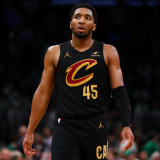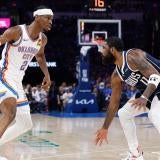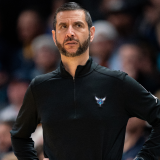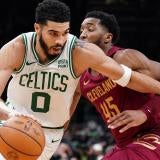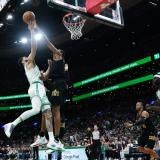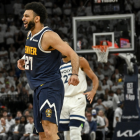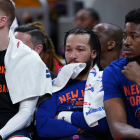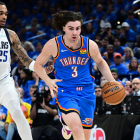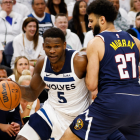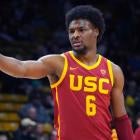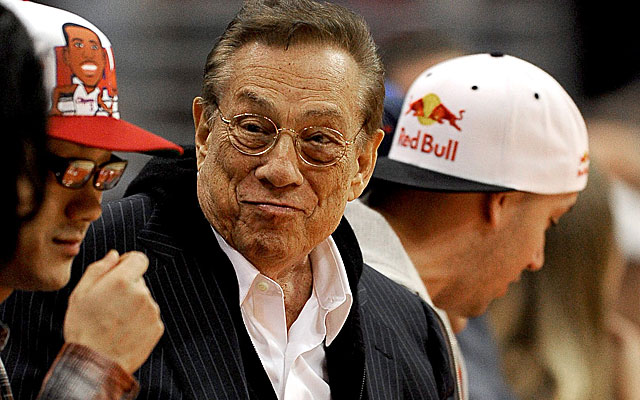
More: Sterling banned for life | Latest updates | NBA news
Within minutes after Adam Silver announced his lifetime ban of Clippers owner Donald Sterling and told the world he intended to ask the owners to force the sale of his team, the assumption was that the end result would be a potentially messy lawsuit.
The stubborn, litigious Sterling, as has been his history, would not go down without a fight.
Lost in the universal approval of Silver's actions is that the new commissioner had not put an end to the Sterling fiasco as much as he had laid the groundwork for a new beginning -- one seemingly bound for federal court. The New York Daily News, citing an anonymous NBA executive close to Sterling, reported Friday that the deposed owner intended to sue if the league's Board of Governors followed through and voted by three-fourths majority to terminate his ownership of the team.
The owners' advisory/finance committee, consisting of 10 owners, already has unanimously agreed to proceed with terminating Sterling's ownership. A vote of the full Board of Governors could happen as soon as mid-May.
The legal basis for Sterling's lawsuit, according to the report, would be the use of the word "willful" in the NBA's Constitution and By-Laws with regard to the violations that activate Article 13, the provisions for termination of ownership. If so, the NBA could find itself embroiled in a fight over whether Sterling's private, recorded comments represented a "willful" violation of the Constitution and By-Laws.
Sounds tricky, messy, costly and lengthy. But then, there is this: The final paragraph of Article 14, which lays out the procedure for the board's termination of ownership, says the following:
"The decisions of the Association made in accordance with the foregoing procedure shall be final, binding, and conclusive, and each Member and Owner waives any and all recourse to any court of law to review any such decision."
As we delve into more and more details of the Constitution and By-Laws, which until Tuesday was a private document that had never been distributed to the public, the more we learn that it is a very one-sided document. This isn't surprising. When an owner or group is approved for ownership of an NBA team, these are the rules that are furnished -- rules that must be followed. Unlike the collective bargaining agreement, which is a negotiated contract agreed upon mutually by the owners and players, the Constitution and By-Laws is a set of rules dictated by the owners, who in turn agree to have their ownership interests governed by them.
If you want to own an NBA team, these are the parameters. You can either agree to them and own a team, or not. You can't own a team and live outside those rules.
It would take well-trained lawyers (and I am not a lawyer, trained or otherwise) to decipher this document and determine whether it passes muster under federal law. For simplicity's sake, the closest example I can think of is this: When you patronize an establishment where athletic or risky activities occur -- a gym, an amusement park, etc., -- you generally sign a waiver that absolves the owner/operator of all liability. But under the law, having someone sign a waiver (or putting similar language on the back of a ticket to the event) does not absolve you of responsibility if you are found to have been negligent.
Sports law expert Gabe Feldman said Friday the legal protections are even stronger for private associations such as the NBA. Even without the recourse language mentioned above, Feldman said courts generally shy away from getting involved in internal disputes.
"A court wouldn't be able to simply second-guess the commissioner or substitute its own judgment for that of the owners," said Feldman, director of the Sports Law Center at Tulane University Law School. "But it could step in if it determined that the commissioner and owners acted outside the scope of the league rules."
So the question of Sterling's legal standing to sue is, like everything else in this case, complicated. It reminds me of Silver's answer to my wonky question about what specific provisions in the Constitution and By-Laws he used to support his decision.
"I'll let the lawyers lay out for you the specific provisions," Silver said.
The NBA's lawyers have yet to do that. But depending on how Sterling decides to proceed -- and how the NBA's Constitution stands up to legal scrutiny, they may well have to do it in a courtroom.







